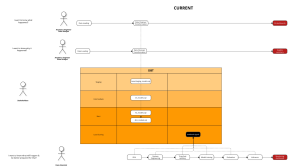As the Private Equity industry continues to evolve, advanced analytics remains a powerful tool for leveraging granular insights, identifying investment opportunities, and enhancing the decision-making processes.
In this article, we explore how advanced analytics strategies are revolutionizing the private equity landscape, and how firms can leverage these techniques to supercharge their roadmaps.

Introduction to Advanced Analytics in Private Equity
Private equity firms traditionally relied on historical data, intuition, and industry expertise to drive their investment decisions. However, with the advent of advanced analytics, firms now have access to a wealth of data and tools that can provide them with a competitive edge.
Advanced analytics encompasses a range of techniques, including predictive modeling, machine learning, natural language processing, and data visualization.
Firstly, by leveraging these techniques, firms can gain deeper insights into their investment portfolios and understand the factors driving performance. By analyzing historical data and using predictive models, firms can identify potential risks and opportunities, optimize their investment strategies, and maximize returns.
Secondly, firms can conduct more accurate due diligence on potential investments. Analyzing financial statements, market data, and other relevant information, enables firms to assess the viability of an investment and make more informed decisions.
Lastly, advanced analytics can also improve operational efficiency within private equity firms. Automating manual processes can streamline their operations, reduce costs, and allocate resources more effectively.
Use Cases of Advanced Analytics in Private Equity
Deal Sourcing and Screening
Traditional methods of sourcing deals often rely on personal networks and industry connections. However, advanced analytics can enhance the deal sourcing process by analyzing vast amounts of data to identify potential investment opportunities. By leveraging machine learning algorithms, firms can scan through thousands of companies and filter them based on predefined criteria such as revenue growth, profitability, and market share. This enables firms to identify high-potential targets and focus their resources on the most promising opportunities.
Due Diligence and Valuation
Private equity firms often rely on financial models and industry benchmarks to evaluate the value of a target company. However, incorporating additional data sources and factors can provide a more comprehensive and accurate valuation. For example, firms can analyze social media sentiment, customer reviews, and macroeconomic indicators to assess the potential growth prospects of a company. This holistic approach to valuation can help firms make more informed investment decisions and negotiate better deals.
Portfolio Management and Performance Monitoring
By integrating data from multiple sources, firms can track the performance of their investments in real-time and identify any deviations from the expected outcomes. Advanced analytics techniques such as predictive modeling can also help firms forecast future performance and optimize their portfolios. By continuously monitoring and analyzing data, firms can make timely adjustments to their investment strategies and maximize returns.
Risk Management and Compliance
Analyzing historical data and identifying patterns can help firms identify and mitigate potential risks. For example, firms can use predictive modeling techniques to assess the likelihood of default or bankruptcy for a target company. Additionally, firms ensure compliance with regulatory requirements by analyzing large volumes of data and identifying any anomalies or red flags.
Challenges and Considerations
While the benefits of advanced analytics in private equity are significant, there are also challenges and considerations that firms need to be aware of.
Firstly, data quality and availability can pose a significant challenge. Firms often deal with disparate data sources, incomplete datasets, and limited access to industry-specific data. To overcome these challenges, firms need to invest in data management capabilities and establish data governance frameworks to ensure data accuracy and reliability.
Secondly, talent acquisition and upskilling are critical. Advanced analytics requires a specialized skill set, including knowledge of statistics, programming, and data visualization. Firms need to invest in training and development programs to build a team of data scientists and analysts who can effectively leverage advanced analytics techniques.
Lastly, privacy and security concerns need to be addressed. Firms handle sensitive financial and personal data, and it is essential to have robust data protection measures in place to safeguard against breaches and unauthorized access.
Final Thoughts
Advanced analytics is transforming the private equity industry by enabling firms to make data-driven investment decisions, optimize their portfolios, and enhance operational efficiency. By leveraging techniques such as predictive modeling, machine learning, and data visualization, firms can gain deeper insights, identify investment opportunities, and mitigate risks.
However, the successful adoption of advanced analytics requires firms to overcome challenges related to data quality, talent acquisition, and privacy concerns. With the right investments in technology, talent, and processes, private equity firms can supercharge their roadmaps and stay ahead in an increasingly competitive landscape.
- Elevating Wellness through Data-Driven Personalization: Restore Case Study - November 11, 2023
- Revolutionizing Credit Risk Management: Ameriprise Financial’s ML Leap - November 10, 2023
- Elevating Customer Engagement: VinID’s Personalization Strategy - November 9, 2023



